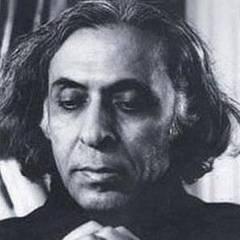Charles Caleb Colton Quotes about Pride

Charles Caleb Colton (1832). “Lacon: Or Many Things in Few Words, Addressed to Those who Think”, p.146
Ladies of Fashion starve their happiness to feed their vanity, and their love to feed their pride.
Charles Caleb Colton (1836). “Lacon: Or, Many Things in Few Words, Addressed to Those who Think”, p.454
Charles Caleb Colton (1828). “Lacon: Or Many Things in Few Words Addressed to Those who Think”, p.216
Charles Caleb Colton (1824). “Lacon, Or, Many Things in a Few Words: Addressed to Those who Think”, p.113
Charles Caleb Colton (1824). “Lacon, Or, Many Things in a Few Words: Addressed to Those who Think”, p.190
Charles Caleb Colton (1836). “Lacon: Or, Many Things in Few Words, Addressed to Those who Think”, p.459
Charles Caleb Colton (1823). “Remarks on the Talents of Lord Byron and the Tendencies of Don Juan”
Charles Caleb Colton (1823). “Remarks on the Talents of Lord Byron and the Tendencies of Don Juan”
We cannot think too highly of our nature, nor too humbly of ourselves.
Charles Caleb Colton (1836). “Lacon: Or, Many Things in Few Words, Addressed to Those who Think”, p.216
Charles Caleb Colton (1823). “Remarks on the Talents of Lord Byron and the Tendencies of Don Juan”
Charles Caleb Colton (1824). “Lacon, Or, Many Things in a Few Words: Addressed to Those who Think”, p.35
The whole family of pride and ignorance are incestuous, and mutually beget each other
Charles Caleb Colton (1824). “Lacon, Or, Many Things in a Few Words: Addressed to Those who Think”, p.190
There is this paradox in pride - it makes some men ridiculous, but prevents others from becoming so.
Charles Caleb Colton (1824). “Lacon, Or, Many Things in a Few Words: Addressed to Those who Think”, p.112
Charles Caleb Colton (1832). “Lacon: Or Many Things in Few Words, Addressed to Those who Think”, p.72
Charles Caleb Colton (1836). “Lacon: Or, Many Things in Few Words, Addressed to Those who Think”, p.25
Charles Caleb Colton (1824). “Lacon, Or, Many Things in a Few Words: Addressed to Those who Think”, p.74
Charles Caleb Colton (1823). “Remarks on the Talents of Lord Byron and the Tendencies of Don Juan”, p.60
Charles Caleb Colton (1832). “Lacon: Or Many Things in Few Words, Addressed to Those who Think”






